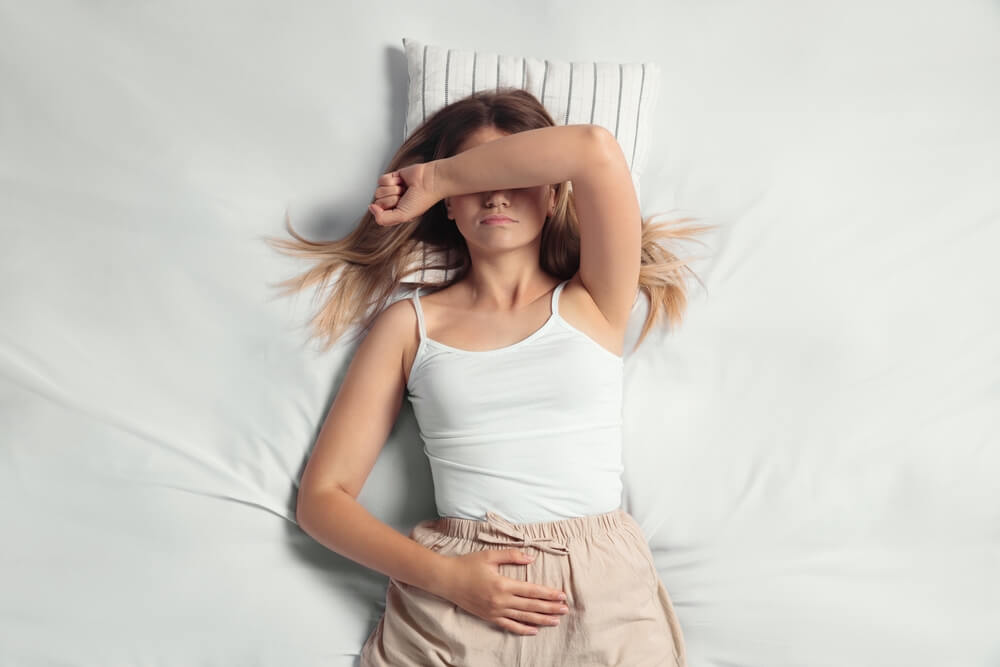Typically, heave period bleeding refers to cases when the period lasts for longer than seven days, or the bleeding is extensive. The condition is better known in the medical community for heavy menstrual bleeding is menorrhagia, and the women dealing with it may need to change their tampons or pads almost every hour, sometimes for several hours. Additionally, the accompanying blood clots may often be the size of a quarter and are frequent during the menstrual flow.
We at Comprehensive OBGYN of the Palm Beaches understand that these heavy periods can have a toll on a woman’s body and may be quite disruptive. That said if you are looking for gynecology care in Loxahatchee, FL, or looking to learn more about ways of dealing with heavy periods, know that our expert team is always prepared to help.
How To Deal With Heavy Periods?
Women dealing with heavy period bleeding may also feel exhausted during their period and experience continuous pain from the cramping. In some cases, the menstrual bleeding is so profuse that it may even lead to anemia.
As such, women who are experiencing anemia should consult with their healthcare provider to diagnose the underlying cause.
Still, apart from working closely with their doctor, these women may explore a few beneficial natural ways to stop menstrual bleeding or at least make the period less disruptive.

Tips for Heavy Periods
Below, we’ll discuss natural ways to stop menstrual bleeding, talk about lifestyle changes that may help, and will also address medical treatments that may help patients find relief.
Lifestyle Changes
Using a Menstrual Cup
These are tiny silicone cups that can be inserted into the vagina to catch the blood in the vaginal canal. While this won’t reduce heavy period bleeding, it will help women reduce the number of bathroom visits throughout the day.
These tiny devices are able to hold more blood than pads and tampons, meaning they need to be emptied less often.
Consider Wearing Period Panties While Sleeping
Wearing absorbent underpants may also help you with heavy period bleeding the same way as cups. Sleeping in these panties is also more comfortable than doing the same with pads, and women may also have to wake up less throughout the night.
Getting Enough Rest
When it comes to natural ways to stop bleeding, getting adequate rest may not help with easing the flow, but it will help restore lost blood and may help with your energy levels and prevent fatigue.
Exercise
Some people may find relief from menorrhagia with the help of exercise. For instance, yoga and other techniques may help reduce the stress that arises from heavy periods.
Use Heating Pads
These can help reduce the most common symptoms of menorrhagia, like cramping and pain, as the warmth of the pad may help relax the muscles.
Tips for Heavy Periods: Supplements and Diet
While there are no findings that indicate that changes in diet alone may help reduce menorrhagia symptoms, experts still argue that getting enough nutrients and staying hydrated may at least help a bit with symptom management, especially if women are simultaneously using other treatments and remedies combat the negative effects of heave period bleeding.
Iron
Women dealing with heavy period bleeding aren’t just losing a lot of blood, but iron as well, as the body uses iron for the production of new blood cells.
As such, iron supplements can help with ensuring that there are plenty of red blood cells in the body, preventing anemia.
Apart from taking iron supplements, women may also opt for consuming foods high in iron, such as legumes, meats, and dark, leafy vegetables.
Vitamin C
Consuming vitamin C supplements or eating foods rich in the compound (like citrus fruits) won’t only help get the most out of vitamin C but will also help with iron absorption.
Drinking Plenty of Water
How to deal with heavy periods? Drinking enough fluids is also a pivotal element in managing your symptoms, as during these periods, patients tend to lose a lot of water along with iron and blood. Staying hydrated throughout the day can help with fatigue and supporting overall health.
Herbal Options
There’s some scientific evidence out there that suggests that specific herbal compounds may help with menorrhagia. While the evidence isn’t conclusive, it does show some promise. According to a review, those who are looking for natural ways to stop heavy menstrual bleeding may try:
- Myrtle fruit syrup
- Ginger capsules
- Pomegranate flower capsules
Still, the evidence isn’t conclusive, and more medical research is necessary to see whether these compounds are helpful or not.
Mediations
Medical experts may recommend certain compounds for women with menorrhagia. There are several options which may help with symptom management, cramping, reducing blood flow, and reducing pain, such as:
- Birth control pills to make your periods more regular
- Ibuprofen may help reduce cramping and pain, along with slowing the bleeding.
- Desmopressin nasal sprays can help prevent blood clots from breaking down, reducing bleeding.
- IUDs or intrauterine devices may help control the bleeding.
- Progesterone and estrogen therapies may help regulate menstruation and reduce bleeding.
- Tranexamic acid and other antifibrinolytic compounds may also help reduce bleeding.
Surgical Solutions
There are a few procedures that may help with heavy-period bleeding. Doctors are more likely to recommend these treatments if the patient is also dealing with uterine polyps and other uterine growths.
Typically, these procedures usually include:
- Operative hysterectomy: This is a minimally invasive procedure that removes the growths and the polyps from the uterus, helping reduce heavy bleeding.
- Endometrial resection or ablation: These surgeries remove either the entire uterine lining or most of it. After the intervention, the periods may stop, but the patient’s fertility.
- Dilation and Curettage: During this procedure, only some of the uterine lining is removed to limit the bleeding. Sometimes, patients may need to undergo the procedure at least once more.
- Hysterectomy: This procedure involves the removal of the entire uterus. This will stop the bleeding but will also mean that the patient can’t become pregnant anymore.
Heavy Menstrual Bleeding: Possible Causes
Various reasons may cause the condition, from temporary and sudden hormone fluctuations to other, more intricate conditions.
Usually, the following may cause problems with menorrhagia:
- Using an IUD
- Taking aspirin
- Hormonal disbalances
- Uterine polyps and fibroids
- Recent pregnancy loss
- Ectopic pregnancy
- PID (pelvic inflammatory disease)
- Von Willebrand’s disease
- Platelet function disorder
- Cervical or uterine cancer
- Kidney, thyroid, or liver disorders
That said, it’s also important to note that providers are sometimes unable to find a single underlying cause that may be the culprit behind heavy menstrual bleeding.

There is Help
Women experiencing heavy menstrual bleeding should always reach out to their healthcare provider. The condition is rather common, and fortunately, there are several ways to manage it.
To learn more about the necessary lifestyle and dietary changes or to learn more about surgical solutions and medicines, feel free to reach out to us. You can go over each approach with our team members, as we will work tirelessly until we find an option that will work for you.


